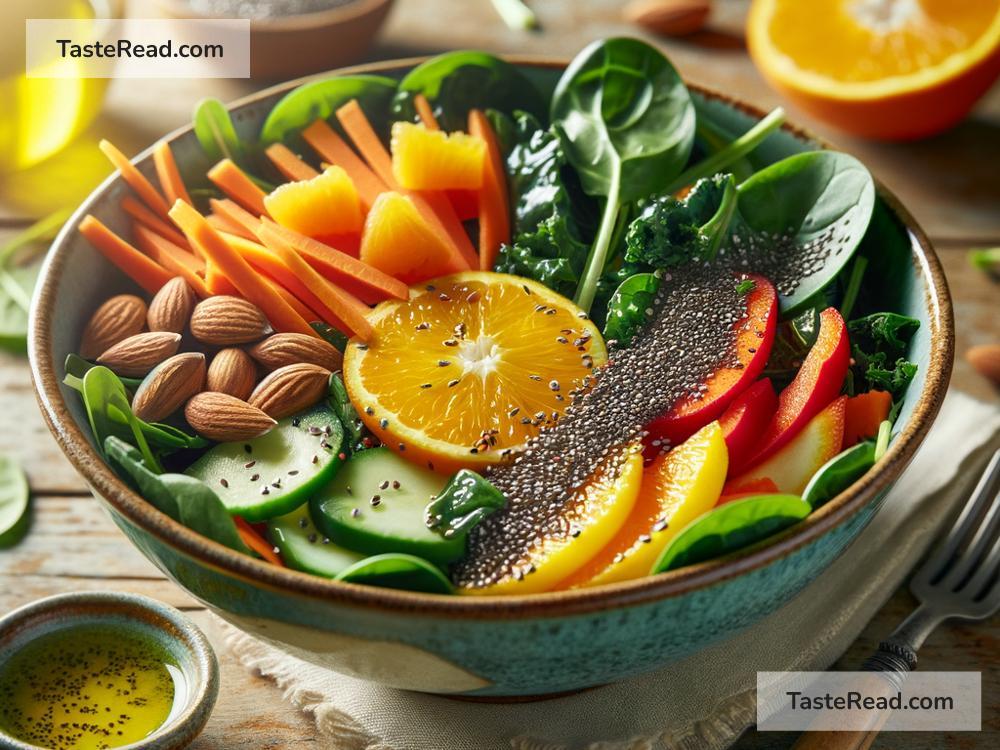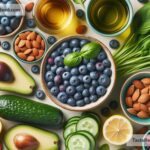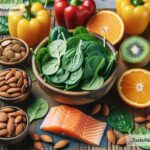Foods That Promote Eye Hydration: Keep Your Eyes Comfortable and Healthy
Most of us spend hours staring at screens daily—whether it’s our smartphones, computers, or TVs. This constant exposure can take a toll on our eyes, leading to dryness, irritation, and discomfort. Staying hydrated is essential to maintaining healthy eyes, and while drinking water helps, there are specific foods that can support eye hydration naturally. Let’s dive into some easy-to-understand tips and learn about delicious foods that can soothe those dry eyes while keeping them healthy.
Why Does Eye Hydration Matter?
Your eyes rely on tears to stay moisturized and comfortable. Tears aren’t just water; they’re a blend of water, oils, and mucus that work together to lubricate the eye surface, protect against infection, and nourish tissues. If your tears dry out or aren’t being produced effectively, you might experience dry eye syndrome. Symptoms include redness, itchiness, blurry vision, and the sensation of grittiness in the eyes.
Dry eyes can result from several factors, such as prolonged screen usage, aging, certain medications, and even weather conditions like wind or air conditioning. While over-the-counter drops can help, improving your diet with eye-friendly foods is a natural way to promote eye hydration and overall health.
Foods to Keep Dry Eyes Away
The good news is that many nutrient-rich foods can boost tear production and support eye hydration. Here are some of the best options:
1. Fatty Fish (Salmon, Tuna, Mackerel)
Fatty fish are packed with omega-3 fatty acids, which are essential for maintaining healthy tear production. Studies have shown that omega-3s can help reduce inflammation in the tear glands, improving both the quantity and quality of tears. If you’re not a fan of fish, consider alternatives like walnuts, flaxseeds, or chia seeds—they’re all excellent sources of plant-based omega-3s.
2. Cucumbers
Cucumbers are one of the most hydrating foods you can eat, thanks to their high water content (about 95%). They’re also rich in vitamin C, an antioxidant that helps protect your eyes against damage from free radicals. Snack on raw cucumber slices, toss them into salads, or add them to a refreshing drink to keep your eyes calm and moisturized.
3. Leafy Greens (Spinach, Kale, Romaine Lettuce)
Leafy greens like spinach and kale are loaded with lutein and zeaxanthin, two powerful antioxidants that benefit your eyes. They not only fight oxidative stress but also support the health of your tear glands. These greens are versatile and can be eaten raw in salads, blended into smoothies, or sautéed for a tasty side dish.
4. Eggs
Egg yolks are another excellent source of lutein and zeaxanthin. Whether scrambled, boiled, or baked, eggs offer the nutrients your eyes need to stay hydrated and free of irritation. They’re also rich in vitamin D, which has been linked to lower rates of dry eye syndrome.
5. Watermelon
If your eyes are feeling parched, reach for some juicy watermelon. Its high water content helps keep your body—and your eyes—hydrated. Watermelon is also a good source of lycopene, an antioxidant that protects your eyes from UV damage and supports overall eye health.
6. Carrots
Carrots are famous for their eye-friendly nutrient, beta-carotene, which converts to vitamin A in your body. Vitamin A is vital for healthy eyes because it helps produce mucus—a key component in tears that prevents dryness and irritation. Snack on raw carrots, add them to soups, or bake them into fries for a fun twist.
7. Sweet Potatoes
Like carrots, sweet potatoes are packed with beta-carotene and vitamin A, making them a delicious option for supporting eye hydration. They’re also rich in potassium, which helps maintain fluid balance in the body. Enjoy baked sweet potatoes as a side dish, mash them into a puree, or add them to stews.
8. Citrus Fruits (Oranges, Grapefruits, Lemons)
Citrus fruits are high in vitamin C, which aids in maintaining healthy blood vessels in the eyes and supports tear production. A burst of citrus in your diet can refresh your body and keep your eyes feeling bright and hydrated. Sip on fresh-squeezed orange juice, snack on grapefruit segments, or add lemon to your water for a hydrating boost.
9. Nuts and Seeds
Almonds, walnuts, sunflower seeds, and flaxseeds are filled with vitamin E and omega-3 fatty acids that combat inflammation and promote tear gland health. Toss them into your yogurt or oatmeal, or keep a handful handy as a convenient snack.
10. Bell Peppers
Colorful bell peppers are rich in vitamin C and zeaxanthin, which protect your eyes from dryness and oxidative stress. Their crunch and natural sweetness make them ideal for salads, stir-fries, or raw snacking.
Tips for Better Eye Hydration
While food plays a crucial role in maintaining eye hydration, don’t forget other lifestyle habits that can help:
- Drink More Water: Aim for at least 8 glasses a day to keep your entire body hydrated.
- Blink Often: Screen time can reduce your natural blink rate, leading to dryness. Make an effort to blink consciously throughout the day.
- Use Humidifiers: Indoor air can be dry, especially during winter months. A humidifier adds moisture to the air, which can benefit your eyes.
- Take Screen Breaks: Follow the 20-20-20 rule—look away from your screen every 20 minutes at something 20 feet away for 20 seconds.
Conclusion
Your eyes deserve care, and proper hydration is an essential part of keeping them happy and comfortable. Including hydrating and nutrient-packed foods in your diet—like cucumbers, fatty fish, leafy greens, and carrots—can naturally support tear production and reduce dryness. Pair these foods with good hydration habits and lifestyle changes, and you’ll soon notice the difference in how your eyes feel.
So next time your eyes feel dry, skip expensive drops and start exploring these delicious, eye-friendly foods instead—you’ll be nourishing both your body and your vision for years to come!


